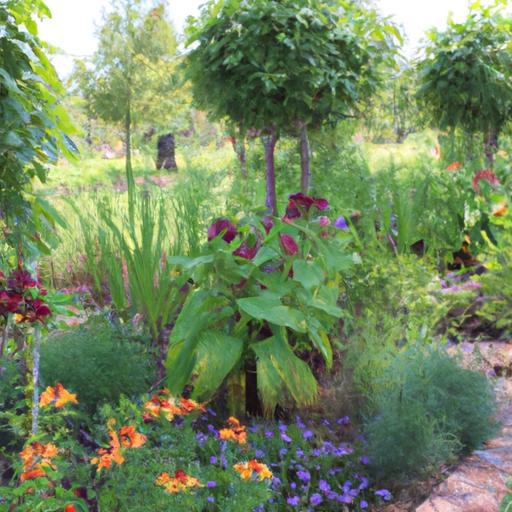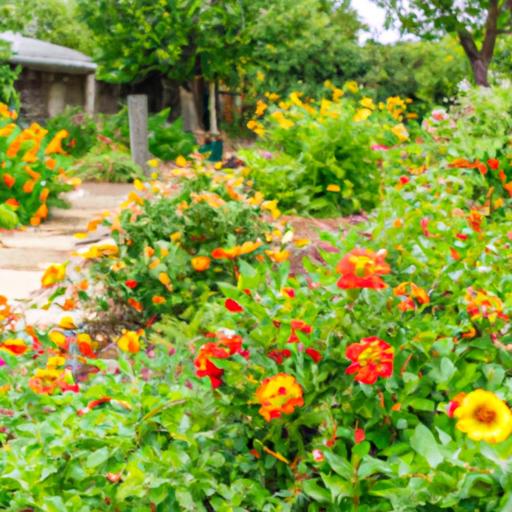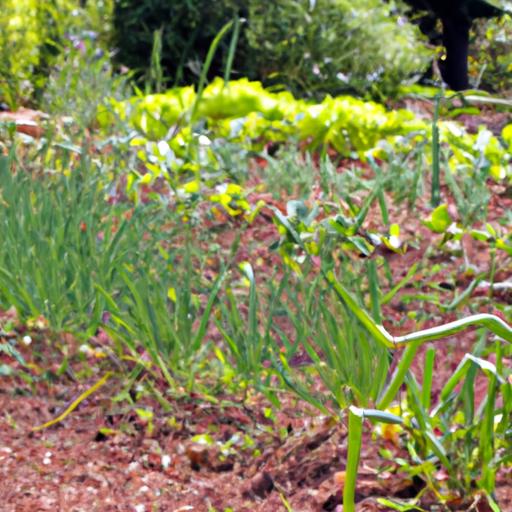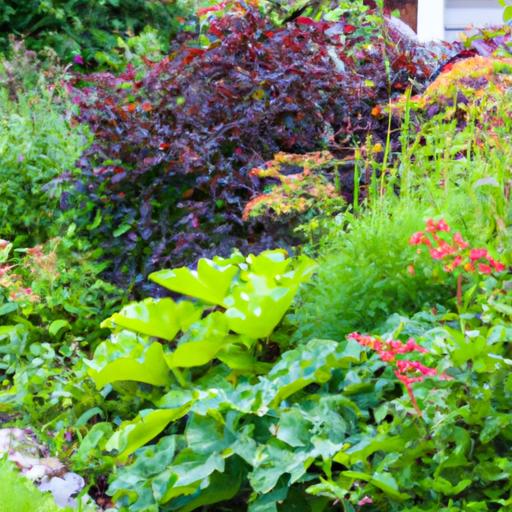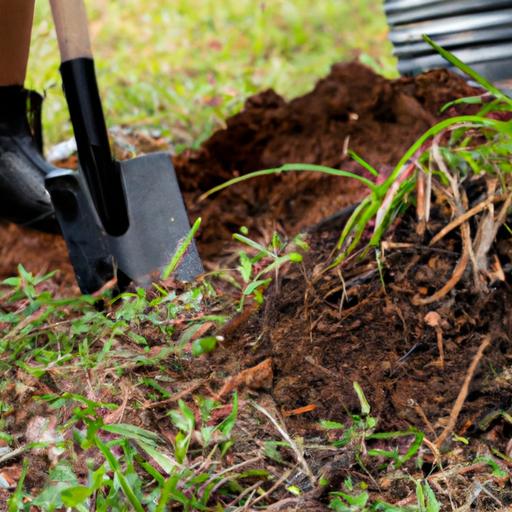Introduction
When it comes to our overall well-being, health is undoubtedly a top priority. But did you know that something as simple and enjoyable as gardening can play a significant role in improving our health? Gardening is not just about nurturing plants; it can also nurture our bodies and minds. In this article, we’ll explore the various ways gardening positively impacts our health and why it should be embraced as a valuable practice.
Gardening has long been recognized as a therapeutic activity that promotes both physical and mental well-being. It offers a unique blend of exercise, relaxation, and connection with nature, making it a perfect recipe for good health. So, let’s dig deeper into the benefits of gardening and uncover why it should be an integral part of our lives.
Gardening is not merely a hobby; it is a holistic approach to maintaining our health. From improving our physical fitness to enhancing our mental clarity, gardening has the potential to transform our well-being. So, roll up your sleeves, grab your gardening tools, and let’s embark on this green journey together, discovering the incredible benefits that lie within the world of gardening.
Physical Health Benefits of Gardening
Increased Physical Activity and Exercise
Gardening is a fantastic way to get moving and stay active. Unlike monotonous gym sessions, gardening offers a dynamic and enjoyable form of exercise. Whether you’re digging, planting, weeding, or pruning, each task requires physical effort, engaging various muscle groups. By spending just a few hours a week in the garden, you can significantly increase your physical activity levels, contributing to a healthier lifestyle.
Improvement in Cardiovascular Health
Engaging in regular gardening activities can have a positive impact on your cardiovascular health. The physical exertion involved, such as digging and raking, gets your heart pumping, improving blood circulation throughout your body. This increased blood flow helps strengthen your heart, reducing the risk of cardiovascular diseases like heart attacks and strokes. Gardening truly becomes a labor of love, both for your plants and your heart.
Strengthening of Muscles, Joints, and Bones
Gardening is a full-body workout disguised as a leisurely pastime. As you engage in tasks like lifting bags of soil, pushing wheelbarrows, or carrying watering cans, you’re effectively building strength in your muscles, joints, and bones. This physical activity helps improve flexibility, coordination, and balance, reducing the risk of injuries and age-related conditions like osteoporosis. Gardening becomes a natural way to keep your body strong and resilient.
Enhanced Immune System and Decreased Risk of Chronic Diseases
Did you know that gardening can give your immune system a boost? Spending time outdoors exposes you to sunlight, allowing your body to naturally produce vitamin D, crucial for a healthy immune system. Additionally, gardening involves being in contact with soil, which is rich in beneficial microorganisms that can strengthen your immune response. By gardening regularly, you’re not only cultivating beautiful plants but also nurturing a healthier immune system, reducing the risk of chronic diseases.
Incorporating gardening into your routine offers a plethora of physical health benefits. From increased physical activity and improved cardiovascular health to stronger muscles, joints, and bones, and a bolstered immune system, gardening provides a holistic approach to keeping your body in top shape. So, let’s continue our green journey and explore the remarkable impact of gardening on our mental well-being.
Mental Health Benefits of Gardening
Reducing Stress and Anxiety Levels
Gardening provides a serene and peaceful environment that can significantly reduce stress and anxiety levels. The act of tending to plants and flowers allows us to focus on the present moment, diverting our attention away from the worries and pressures of daily life. The rhythmic movements of planting, watering, and pruning can have a soothing effect on our minds, promoting a sense of calm and tranquility.
Boosting Mood and Emotional Well-being
Have you ever noticed how spending time in nature instantly lifts your spirits? Gardening has the incredible power to boost our mood and enhance emotional well-being. The vibrant colors, fresh scents, and natural beauty of a well-tended garden can evoke a sense of joy and happiness. It’s like a natural antidepressant, providing us with a visual feast that stimulates positive emotions and fosters a sense of fulfillment.
Promoting Relaxation and Mindfulness
In our fast-paced and technology-driven world, finding moments of relaxation and mindfulness can be challenging. However, gardening offers a perfect escape from the chaos of daily life. The act of digging in the soil, feeling the texture of the earth, and listening to the sounds of nature can help us reconnect with ourselves and cultivate a sense of mindfulness. It allows us to slow down, appreciate the present moment, and find solace in the beauty of nature.
Alleviating Symptoms of Depression and Other Mental Health Disorders
Gardening has been found to have a positive impact on individuals struggling with mental health disorders, including depression. The physical activity involved in gardening releases endorphins, which are natural mood enhancers. Moreover, nurturing plants and witnessing their growth can provide a sense of purpose and accomplishment, helping individuals regain their confidence and overcome the challenges associated with mental health conditions.
Incorporating gardening into our lives can be a powerful tool in improving our mental well-being. It offers a sanctuary where we can find solace, embrace mindfulness, and experience the uplifting effects of nature. So, let’s grab our gardening gloves and let the transformative power of plants guide us on a journey of emotional healing and self-discovery.
Cognitive Benefits of Gardening
Our cognitive health is just as crucial as our physical and mental well-being. Engaging in gardening activities can have a profound impact on our cognitive abilities, allowing us to sharpen our minds and unleash our creative potential. Let’s explore some of the remarkable cognitive benefits that gardening offers.
Improvement in Attention Span and Focus
In a world filled with distractions, finding ways to improve our attention span and focus is vital. Gardening provides an opportunity to cultivate mindfulness and practice sustained attention. As we tend to our plants, we must pay close attention to their needs, ensuring they receive the right amount of water, sunlight, and nutrients. This mindful engagement in gardening can extend beyond the garden and positively impact our ability to focus on tasks in other areas of life as well.
Enhancement of Problem-Solving and Creativity Skills
Gardening presents us with a myriad of challenges that require problem-solving skills. From determining the best location for a plant to troubleshooting issues like pest infestations or nutrient deficiencies, these challenges stimulate our problem-solving abilities. Additionally, gardening encourages creativity, as we design and arrange our garden spaces, experimenting with different plant combinations and aesthetics. This creative outlet can translate into other areas of our lives, fostering innovation and resourcefulness.
Stimulation of Memory and Cognitive Functions
Engaging in gardening activities exercises our memory and cognitive functions. Remembering the specific needs of different plants, such as watering schedules or pruning techniques, helps improve our memory retention. The act of planning and organizing our garden also stimulates our cognitive abilities, as we strategize and make decisions about which plants to grow, how to arrange them, and how to optimize their growth. By engaging in regular gardening, we can effectively exercise our brain, promoting cognitive vitality.
Potential Prevention or Delay of Age-Related Cognitive Decline
As we age, cognitive decline becomes a growing concern. However, research suggests that gardening may help prevent or delay age-related cognitive decline. The combination of physical activity, mental stimulation, and connection with nature that gardening offers has been shown to have a protective effect on cognitive health. By incorporating gardening into our lives, we can potentially safeguard our cognitive functions and enjoy a sharper mind well into our golden years.
In conclusion, gardening not only nurtures our plants but also nurtures our cognitive well-being. From improving our attention span and problem-solving skills to stimulating memory and potentially preventing age-related cognitive decline, the cognitive benefits of gardening are undeniable. So, let’s embrace gardening as a powerful tool to cultivate our minds and reap the incredible cognitive rewards it has to offer.
Social Benefits of Gardening
Gardening not only nourishes our plants but also nurtures our social connections. It provides us with numerous opportunities for social interaction and community engagement, bringing people together through a shared love for nature. Let’s explore the various ways gardening contributes to our social well-being.
Opportunities for Social Interaction and Community Engagement
Gardening can be a fantastic way to connect with others who share similar interests. Whether it’s joining a local gardening club, participating in community gardening projects, or simply chatting with fellow green thumbs at the local nursery, gardening opens doors to meet new people and form valuable connections. These interactions create a sense of community and provide a platform for exchanging knowledge, experiences, and gardening tips.
Creation of a Sense of Belonging and Purpose
Engaging in gardening activities can instill a deep sense of belonging and purpose within us. When we tend to our plants, we become part of a larger ecosystem, nurturing life and contributing to the beauty of our surroundings. This sense of purpose can be incredibly fulfilling, especially for those who may feel disconnected from their environment or lacking a sense of direction in their lives.
Promotion of Teamwork and Collaboration
Gardening often involves teamwork, particularly in community gardens or larger-scale projects. Working together with others towards a common goal fosters a sense of camaraderie and encourages collaboration. Whether it’s planning, planting, or maintaining the garden, each person’s unique skills and strengths contribute to the collective success. Through teamwork, we learn to appreciate the power of collaboration and the positive impact it can have on both the garden and our relationships.
Development of Empathy and Compassion
Gardening teaches us to be more empathetic and compassionate towards other living beings. As we care for our plants, we learn to understand their needs, observe their growth, and respond to their vulnerabilities. This understanding extends beyond the garden, helping us cultivate a deeper sense of empathy towards people and other creatures in our lives. Gardening can nurture our compassion, reminding us of the interconnectedness of all living things and encouraging us to be more mindful and considerate of others.
In conclusion, gardening not only beautifies our surroundings but also enriches our social lives. It provides opportunities to connect with like-minded individuals, fosters a sense of purpose and belonging, promotes teamwork and collaboration, and nurtures empathy and compassion. So, let’s embrace gardening not only as a means to enhance our health but also as a tool for building stronger communities and fostering meaningful relationships.
Conclusion
In conclusion, it is evident that gardening is not only a pleasurable pastime but also a powerful tool for improving our health. The physical, mental, cognitive, and social benefits that gardening offers are truly remarkable. Engaging in this nurturing activity allows us to reap the rewards of increased physical activity, reduced stress levels, improved cognitive functions, and a sense of connection with others.
By incorporating gardening into our daily lives, we can cultivate not only beautiful gardens but also a healthier and happier version of ourselves. So, whether you have a small balcony or a spacious backyard, take the opportunity to get your hands dirty and let the healing power of gardening transform your well-being.
Remember, gardening is not about perfection; it’s about the journey. Embrace the process, learn from your plants, and savor the rewards of your efforts. Start small, experiment with different plants, and gradually expand your garden. The joy and fulfillment you’ll experience will go beyond the beauty of your blossoming flowers or the taste of your homegrown vegetables. Gardening will become a sanctuary, a refuge where you can find solace, nurture your health, and reconnect with nature.
So, let’s grab our gardening gloves, dig deep, and let the magic unfold. Your health and well-being deserve the nurturing touch of a green thumb. Get ready to embark on this incredible journey and witness the transformative power of gardening in your life.
In the words of Ralph Waldo Emerson, “The creation of a thousand forests is in one acorn.” Start planting the seeds of good health today, and watch as your garden flourishes, both in beauty and in the positive impact it has on your overall well-being.
